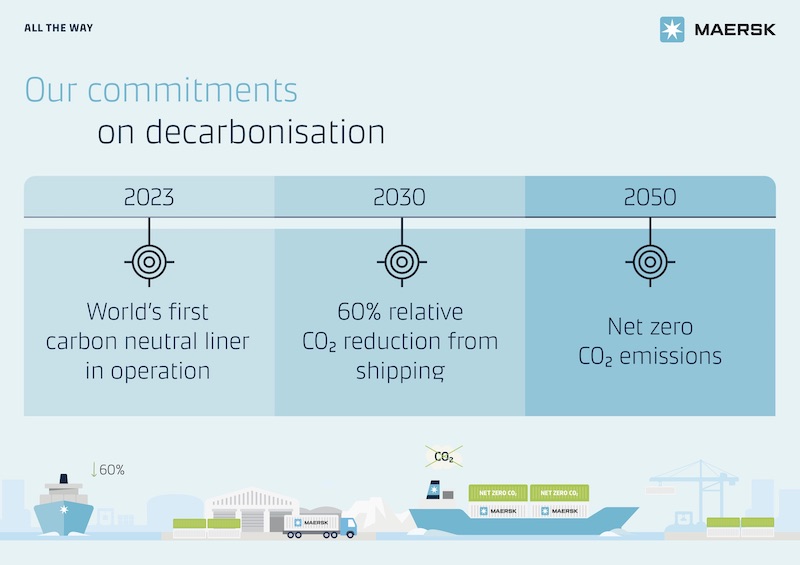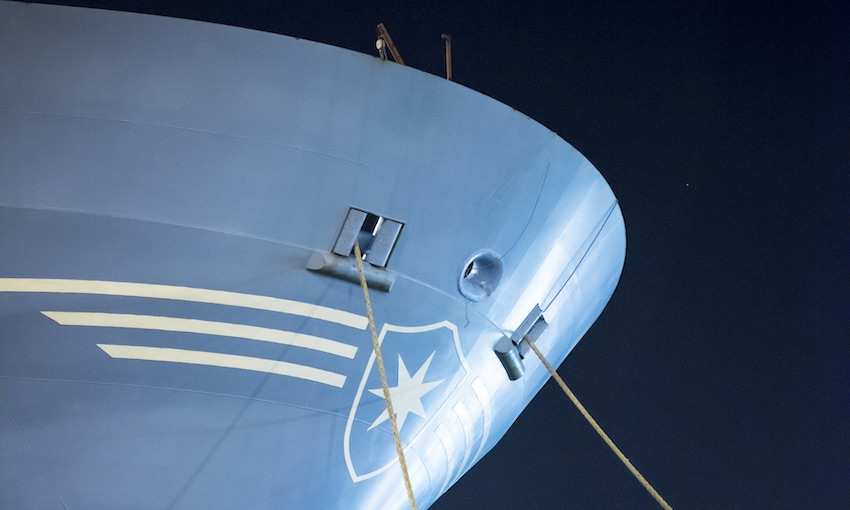MAERSK has announced it will speed up its decarbonisation activities with the advent of a new methanol-fulled feeder vessel in operation by 2023. The vessel will pilot a scalable carbon neutral product to customers and offer fuel suppliers an incentive to scale production of the “fuels of the future”.
The liner shipping company also said that all future owned newbuild vessels will be able to operate on carbon neutral fuels or very low sulphur fuel oil.
It cites fast-tracked advances in technology and increased customer demand as the key drivers in its decarbonisation efforts, which are now tracking seven years ahead of its initial timeframes.
Søren Skou, CEO, A.P. Moller – Maersk said, “Maersk’s ambition is to lead the way in decarbonising global logistics. Our customers expect us to help them decarbonise their global supply chains, and we are embracing the challenge, working on solving the practical, technical and safety challenges inherent in the carbon neutral fuels we need in the future.
“Our ambition to have a carbon neutral fleet by 2050 was a moonshot when we announced in 2018. Today we see it as a challenging, yet achievable target to reach.”
Around half of Maersk’s 200 largest customers have set – or are in the process of setting – ambitious science-based or zero carbon targets for their supply chains, and the figure is on the rise.
Maersk’s methanol feeder vessel will have a capacity of around 2000 TEU and be deployed in one of its intra-regional networks. While the vessel will be able to operate on standard VLSFO, the plan is to operate the vessel on carbon neutral e-methanol or sustainable bio-methanol from day one.
“We believe our aspiration to put the world’s first carbon neutral liner vessel in operation by 2023 is the best way to kick start the rapid scaling of carbon neutral fuels we will need,” said Henriette Hallberg Thygesen, CEO of fleet and strategic brands, A.P. Moller – Maersk.
Both the methanol-fueled feeder vessel and the decision to install dual fuel engines on future newbuildings are part of Maersk’s ongoing fleet replacement. CAPEX implications will be manageable and are included in current guidance.


